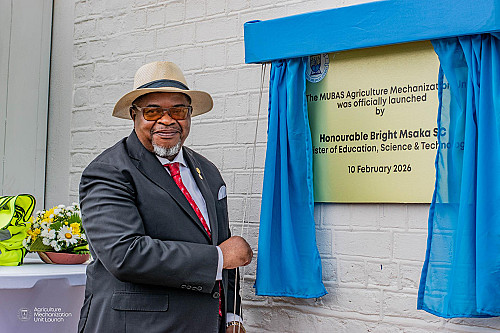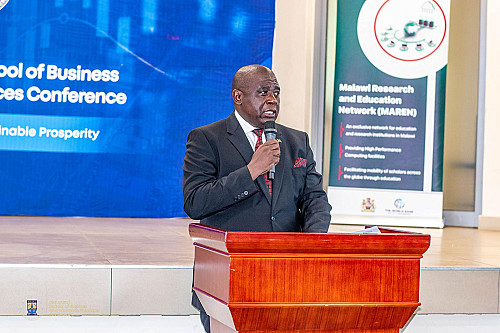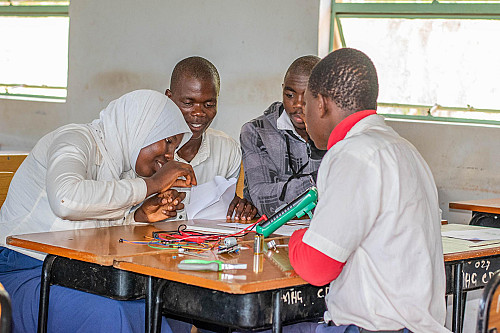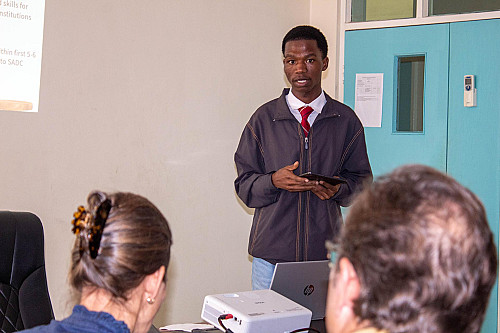News
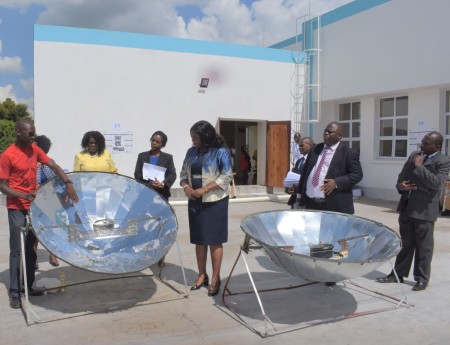
What was it all about?
The MIDC was a platform where innovators or creators of technologies and solutions to real-life unmet challenges in communities and industries exhibited their innovations. Potential users of technologies, industry practitioners and academia were given an opportunity to interact with the innovators and appreciate such efforts. Innovators also had a chance to market themselves to the public and got much needed feedback from potential users that could enhance their solutions. This interaction between innovators and the general public took place from around 11:00 AM to 14:30 PM on 27th January 2020.
The event also gave a chance to innovators to compete for various prizes. For this reason over 20 projects were exhibited and evaluated by a group of 25 judges (local and international). The evaluation of the projects by judges was conducted from around 8:00 AM to around 11:00 AM.
What were the qualifications of the contestants?
For the purpose of this event, we encouraged young innovators that have engineering solutions regardless of their professional qualifications. We believe that educational qualification, much as it is very important, does not prevent one from creating an engineering solution. However, once the contestants to this event submitted their ideas the organizing team, as Engineers and academicians, rigorously reviewed the submissions to see if they really meet all engineering principles. Innovators who lacked some basic engineering principles were mentored accordingly.
What was the theme of the event?
The theme for design competition was “transforming inventions into innovations for national development”. This theme was deliberately chosen to indicate the desire to see to it that inventions are taken out of the laboratories into the environment where they are used for them to become innovations. In this way the economic growth of the country could be enhanced.
What kind of projects were exhibited?
The competition exhibited projects by students and professional teams from all over the country. There was a wide variety of technologies, from health to agriculture. There were over 23 projects, among which were:
1. Medical Pills Anti-Counterfeit App (MPAC);
2. Automated Green House Control and Monitoring System;
3. Banknote Fitness Classification System;
4. Biometric Voting management System;
5. Let Me Know Communication Device;
6. A Food Waste Decomposing System;
7. Frata Stain Removal Duster;
8. Infants Life Engine;
9. Intelligence Logistics;
10. IoT Based Data Acquisition ;
11. LearnBox;
12. Linear CNC Robotic Plotter;
13. Parabolic and Box Solar Cooker;
14. Portable Solar Cooler;
15. Robotic Arm;
16. Solar Tracking Water Purifier;
17. Smart Farming System;
18. Spotlight Patient Monitoring System (PAMOSYS)¬¬¬;
19. Natural Disaster Victim Needs Reporting System;
20. Pneumatic Tube Transport System;
21. Ultra-power Supply (UPS) for Generation of Electricity;
22. Wind Energy and Cycle Pumping System; and
23. Egg Incubator.
Who were the judges?
The projects were evaluated and assessed by a carefully selected group of 19 local and 6 international judges of expertise spanning from engineering (both academic and industrial), business, ICT to entrepreneurship. From Tanzania we had Dr. S. Karugaba, Dr. J. Msumba, and Ms J. Jenjezwa; from Nigeria we had Dr. O. Popoola, and Dr. A. Dare; from USA we had Dr. A. Gobin; and local judges were Mr. M. Chintengo, Dr. S. Gondwe, Dr. D. Sanyahumbi, Eng. F. Mzandu, Mr. H. Chimphepo, Mr. R. Khan, Mr. S. Ndevu, Mr. M. Banda, Dr. S. Mlatho, Mr. M. Kumcheza, Dr. E. Kangaude-Nkata, Mr. E. Khundi, Dr. R. Bakolo, Dr. S. Kaunda, Ms. C. Sambakunsi, Miss. Barwani Msiska, Ms. S. Senti, Mrs M. Nsomba, and Ms. D. Mkwezalamba
What were the prizes of the competition winners?
The total prize money was MK1,500,000. There were three main categories for the contestants: First prize was MK500,000; second prize was MK350,000, and third prize was MK250,000. There were also four consolation prizes with each winning project pocketing MK100,000. The winning projects were as follows:
Project title and description Prize category
Stain Removal Duster (1st Prize)
White duster contains fluid that erase stains that remain on the board. It is time saving and thus increases the productivity in offices and schools.
Linear CNC Robotic Plotter (2nd Prize)
This is a low-cost wheeled CNC plotter with unlimited working length that uses CAD file to manufacture various products. Xplota can work both in inner and outside space at any smooth floor, its portable, environmental friendly, low power consumption, doesn’t require special skills, and can work on various materials.
Infants Life Engine (3rd Prize)
This is an advanced patient monitoring device. The device is portable and houses different sensors (temp, heartrate etc.), which enables real-time monitoring and storage of patient data. Also features remote access through mobile phone app.
Portable Solar Cooker (Most Innovative)
This is a portable solar cooler capable of delivering effective cooling effect at the expense of the available solar. Its design allows it to excellently handle constant or varying motion.
Biometric Voting Management System (Most Impartful)
This is a prototype that handles the whole election process relying on biometrics. It minimizes the chances of null and void votes to almost 0 for more accurate voter authentication.
LearnBox (Best Prototype Exhibit)
The Learn Box is a low-cost device (
Natural Disaster Victims Needs Reporting System (Best Use of Local Materials)
USSD System is similar to Mo626 where victims will be able to report about Natural Disasters or their needs. Relief Agencies will be able to access the data via a web portal. Reports will be verified before taking action or providing assistance.
Who were the key invited guests?
The event was graced by the minister of labour, skills and innovation Honourable Martha Chanjo Lunji Mhone Member of Parliament (MP) as a guest of honor. She was flanked by the Vice chancellor, Principals and Vice Principals of the two hosting institutions. There was also a Guest speaker whose talk revolved around transforming inventions into innovations. He was the Chief Executive officer of the Malawi Telecommunications Limited, Associate Professor Harry Gombachika. Top officials of various engineering companies, Banks, and entrepreneurs were also present at the event.
Who were the organizing committee members?
1. Million Mafuta, Co-Chair (Polytechnic);
2. Jennifer Chimwaza, Co-Chair (MUST);
3. Dr. Gregory Gamula, (Polytechnic);
4. Dr. Theresa Mkandawire, (Polytechnic);
5. Samuel Ngánjo, (Polytechnic);
6. Will Moyo, (MUST & Polytechnic);
7. Hillary Lodzanyama, (Polytechnic);
8. Andrew Ndalama, (Polytechnic); and
9. Richard Chilipa, (MUST).
Similar Posts



